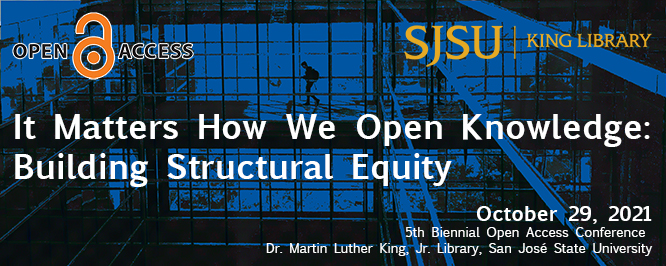Open Access and Information Literacy: The Role of Librarians
Loading...
Start Date
29-10-2021 12:50 PM
End Date
29-10-2021 1:00 PM
Description
Down history and across various cultures, the traditional methods of research have evolved moving more frequently away from the platforms of the library, meaning that librarians would require new ways of addressing up to date information literacy considerations. This is why Information literacy, that which is chiefly concerned with the instinctive detection of information together with the understanding of how these information is produced and valued following all the laid down ethical and legal procedures and the use of these information in the formation of new data, as would be seen in this piece comes handy in recognizing the role of librarians who over time have long been informally developing these practices. Now, how users at all levels discover and make use of these information is very important and this is where Open Access comes in, especially because it possess instantaneous and manifold consequences for these users. This piece then will use the framework for Information Literacy for Higher education to expound on how librarians can engage undergraduate students on how to use and comprehend; evaluate, and create resources in Open access. Indicating how incorporating Open Access resources and platforms into information literacy, trainings and seminars, librarians would have opportunities to add value and insight during this transitional period; also touching on the challenges and practical implications as found in Open access, its elasticity, and importance for the data privacy, and the new steps of the academic libraries as essential actors for the Open Access contents.
Transcript of video
Open Access and Information Literacy slides.pdf (11546 kB)
Presentation slides
Open Access and Information Literacy: The Role of Librarians
Down history and across various cultures, the traditional methods of research have evolved moving more frequently away from the platforms of the library, meaning that librarians would require new ways of addressing up to date information literacy considerations. This is why Information literacy, that which is chiefly concerned with the instinctive detection of information together with the understanding of how these information is produced and valued following all the laid down ethical and legal procedures and the use of these information in the formation of new data, as would be seen in this piece comes handy in recognizing the role of librarians who over time have long been informally developing these practices. Now, how users at all levels discover and make use of these information is very important and this is where Open Access comes in, especially because it possess instantaneous and manifold consequences for these users. This piece then will use the framework for Information Literacy for Higher education to expound on how librarians can engage undergraduate students on how to use and comprehend; evaluate, and create resources in Open access. Indicating how incorporating Open Access resources and platforms into information literacy, trainings and seminars, librarians would have opportunities to add value and insight during this transitional period; also touching on the challenges and practical implications as found in Open access, its elasticity, and importance for the data privacy, and the new steps of the academic libraries as essential actors for the Open Access contents.

